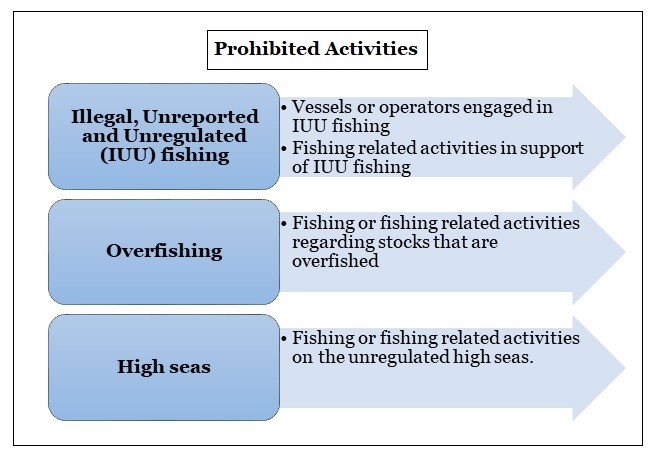900 319 0030
enquiry@shankarias.in
Ahead of 13th Ministerial Conference of World Trade Organization meeting, National Fishworkers Forum asked Ministry of Commerce and Industry to urge WTO to exclude small scale fishing from fisheries subsidies.
|
Status of India’s marine fishing |
|
It is the first ever multilateral trade agreement with environmental sustainability at its core.
Goal 14.6 targets the cessation of harmful fisheries subsidies by 2020, addressing overcapacity, overfishing, and combatting illegal fishing subsidies.

|
World Trade Organization |
|